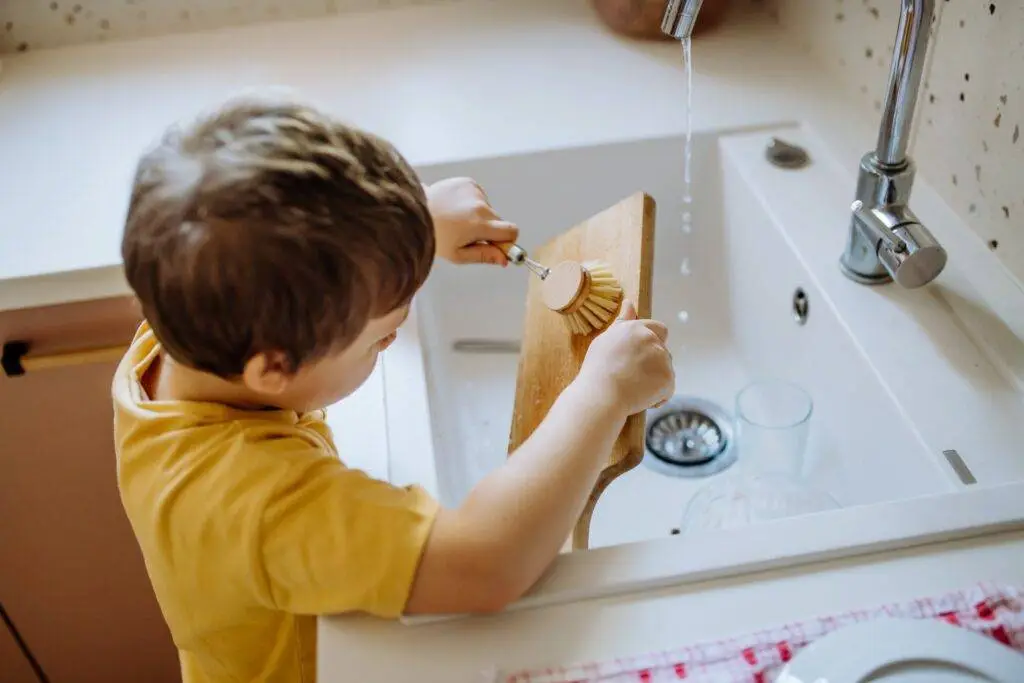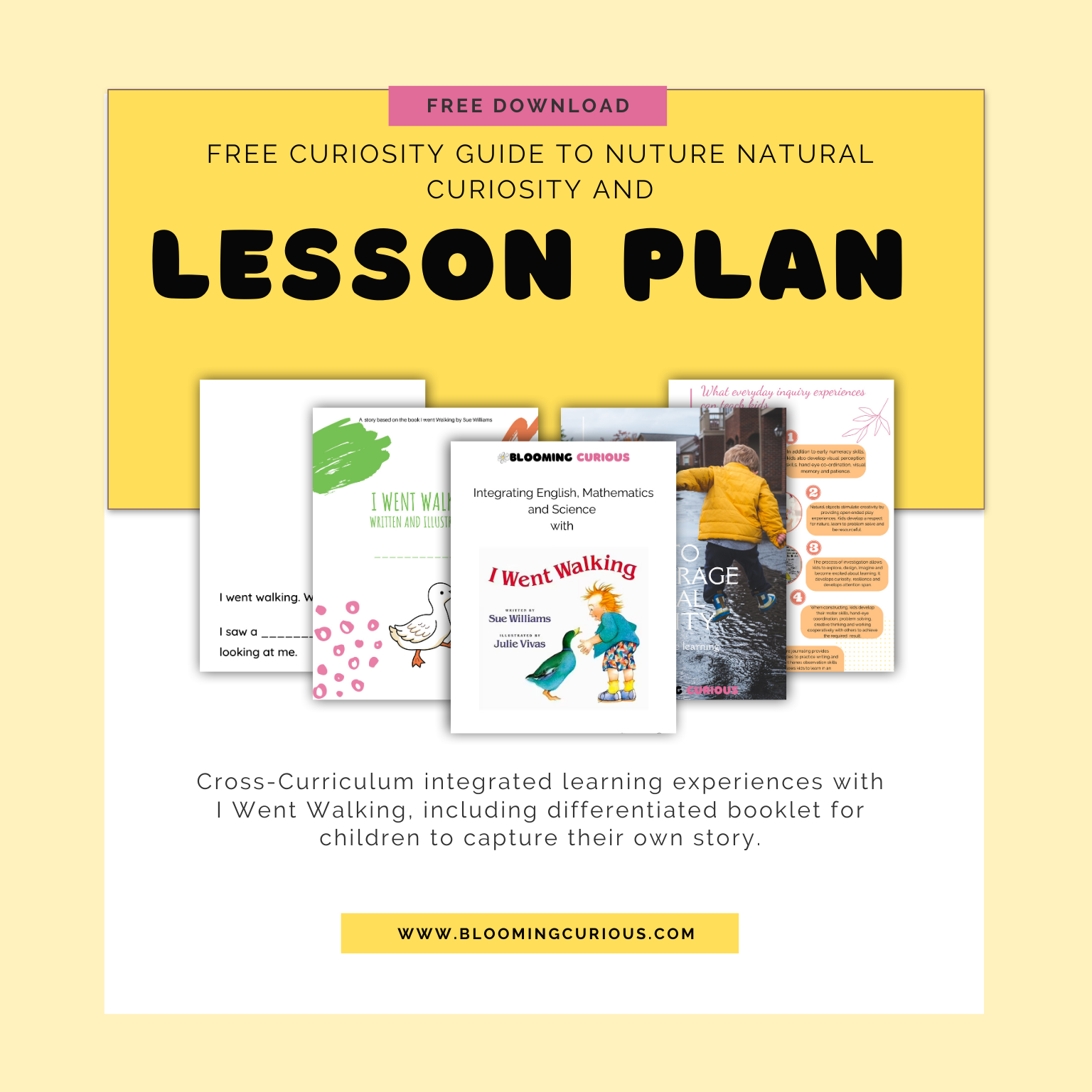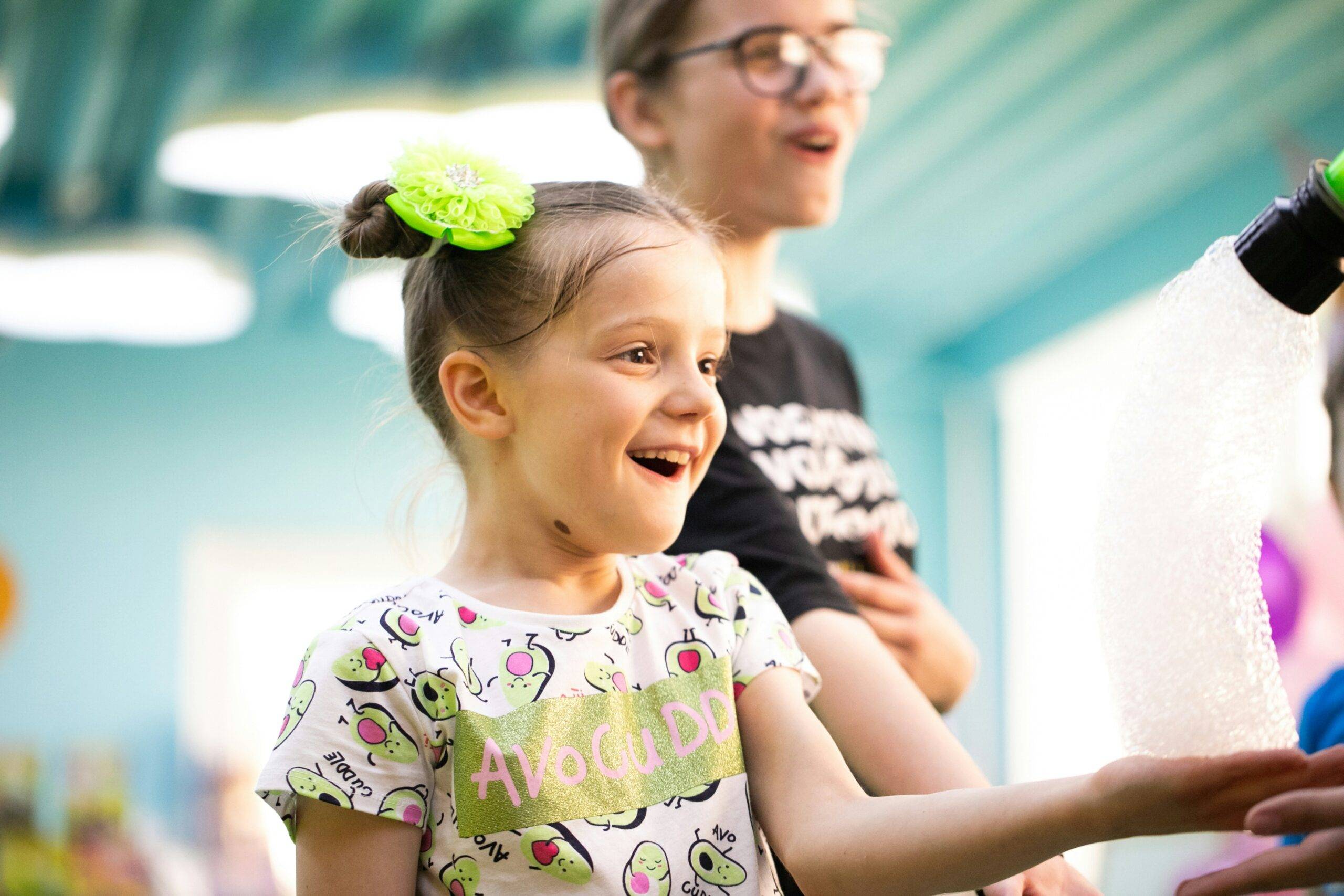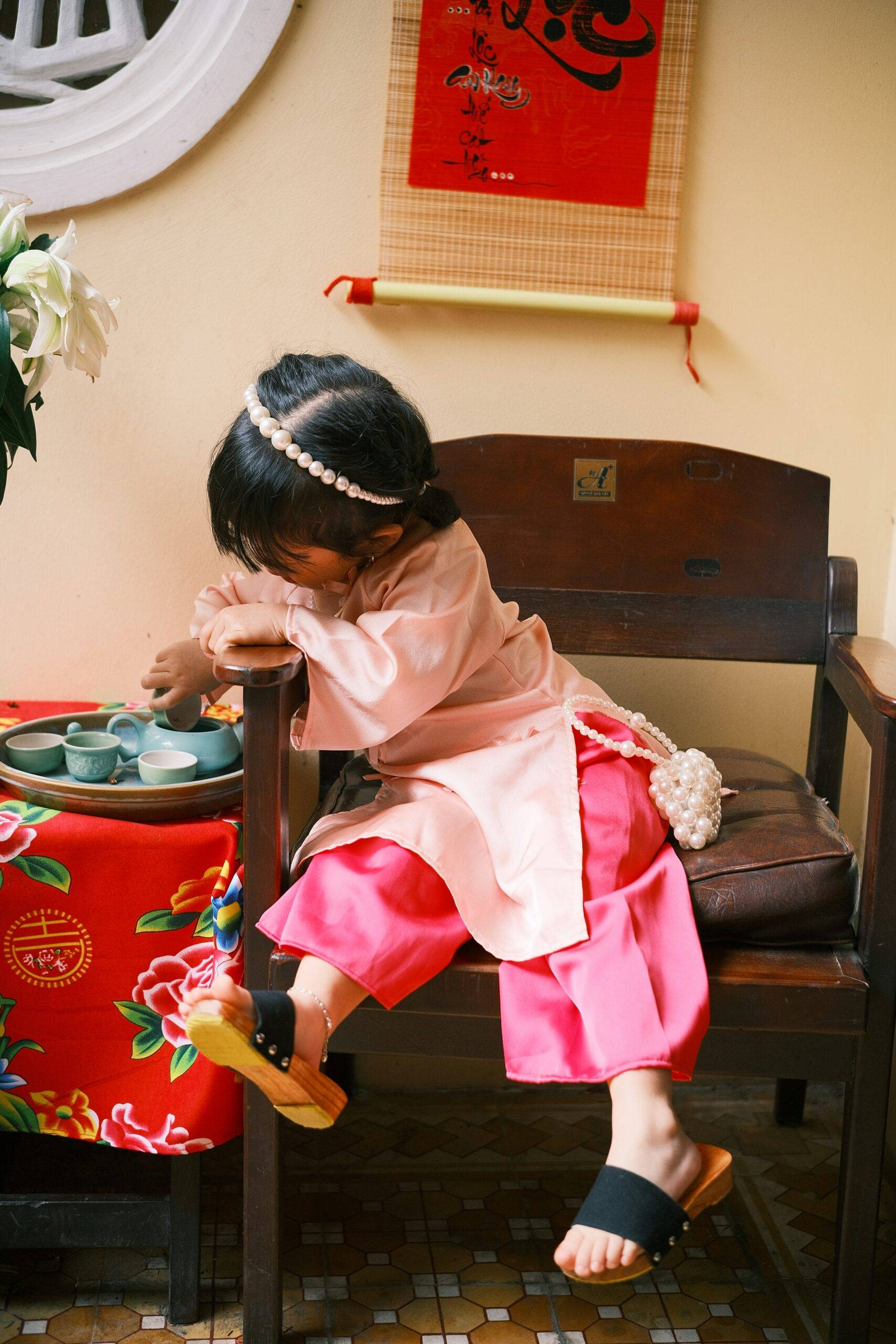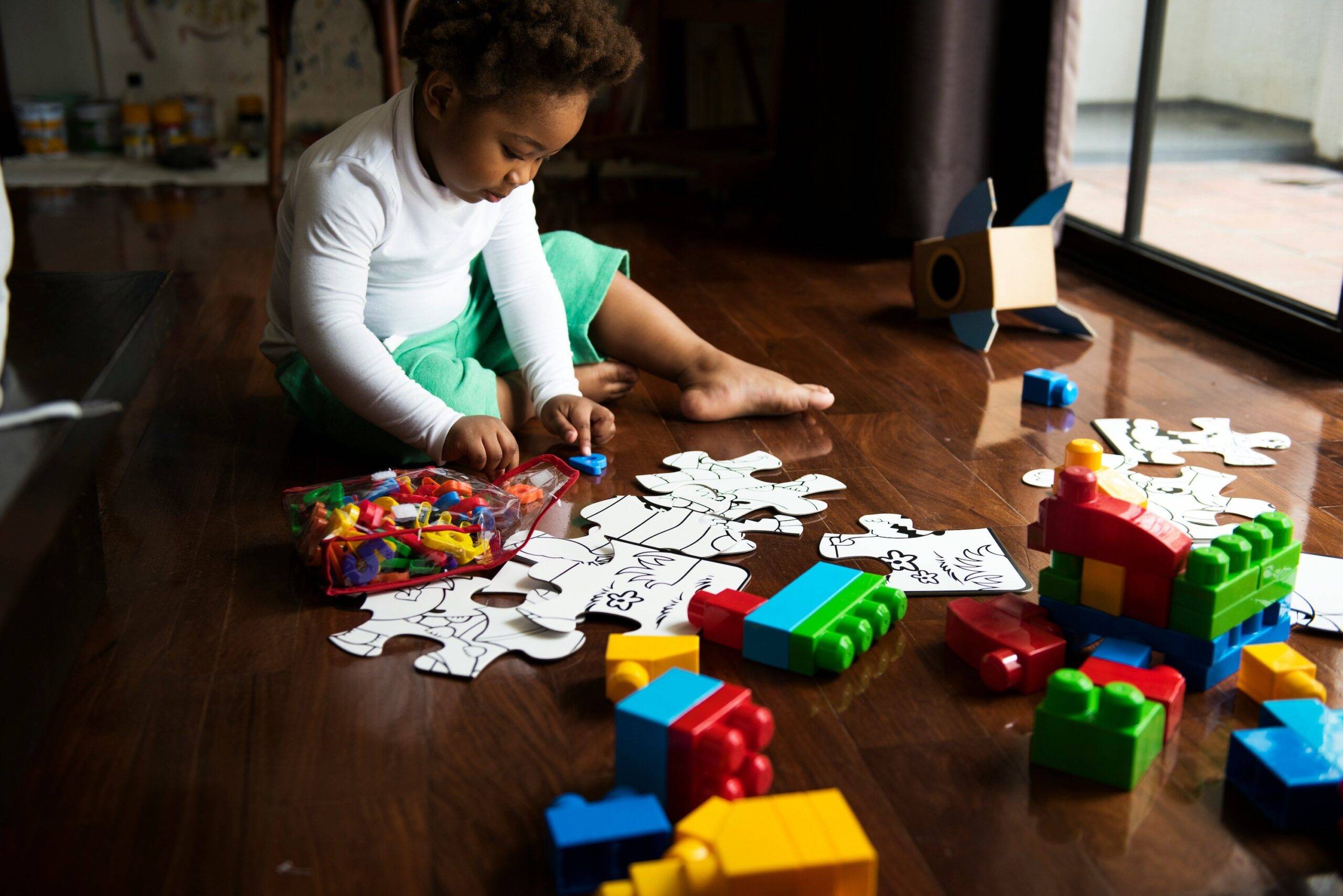Some of the links below may be affiliate links. This means that, at zero cost to you, I will earn an affiliate commission if you click through the link and finalise a purchase. All product recommendations are products that I have used and loved, or products that I would recommend based on experience.
7 Life Skills to Teach Kids From Age Three
Kids come into this world a blank slate and rely on us their parents, carers and educators to teach them the necessary life skills not only to survive but successfully meet the challenges and curve balls life will inevitably throw at them.
It’s best to start early and teach our children these practical lessons to help them navigate their daily life at home, school and the community. Keep in mind that these are small children. They are still learning and at various stages of their development. We will need to repeat ourselves many times over until the penny drops and they eventually master the skills. Some they will learn easily. Others will take some time.
Learning about Health and Hygiene
Kids are never too young to be learning about how to take care of their health and hygiene. They are learning about keeping clean from their daily baths and showers, teeth cleaning, hair and hand washing. These activities become daily rituals and habits and so children learn that this is a normal and daily part of their lives. As they grow older you can begin to explain why it’s important to have good hygiene and how it helps to keep us healthy and free of germs and bad smells.
Children will need help with tooth brushing up until they have really well-developed fine motor skill at around age seven or eight. So, although you let them have a go from three years of age, you will still need to follow up and ensure that all surfaces have been cleaned properly.
When it comes to bathing and showering, children will need help to wash themselves properly. As you wash them, start explaining and being explicit about the steps to take.
Explain out loud as you wash them e.g. “First, we put shampoo on our hair like this. We rub it all in everywhere, and we don’t forget behind our ears. Now we are ready to rinse. We have to make sure we get all the shampoo out of our hair. Good now we move onto our body.”
And so, you go through the whole process guiding them every step of the way. Eventually you let them do it, while you supervise and remind. You can only leave and trust them to shower or bath alone when they can be trusted not only to do it properly, but also safely. That means you would have explained about safety in the bathroom and why it’s important.
By following our example children are also learning the habits of leading a healthy lifestyle from the daily food and exercise they are getting. If we want our children to lead healthful lives, we need to feed them healthy foods, which become a natural part of their lives, and get them out doing lots of physical activity, which is not just good for our kids’ physical health, and gross motor skills, but also for the whole family’s health and well-being.
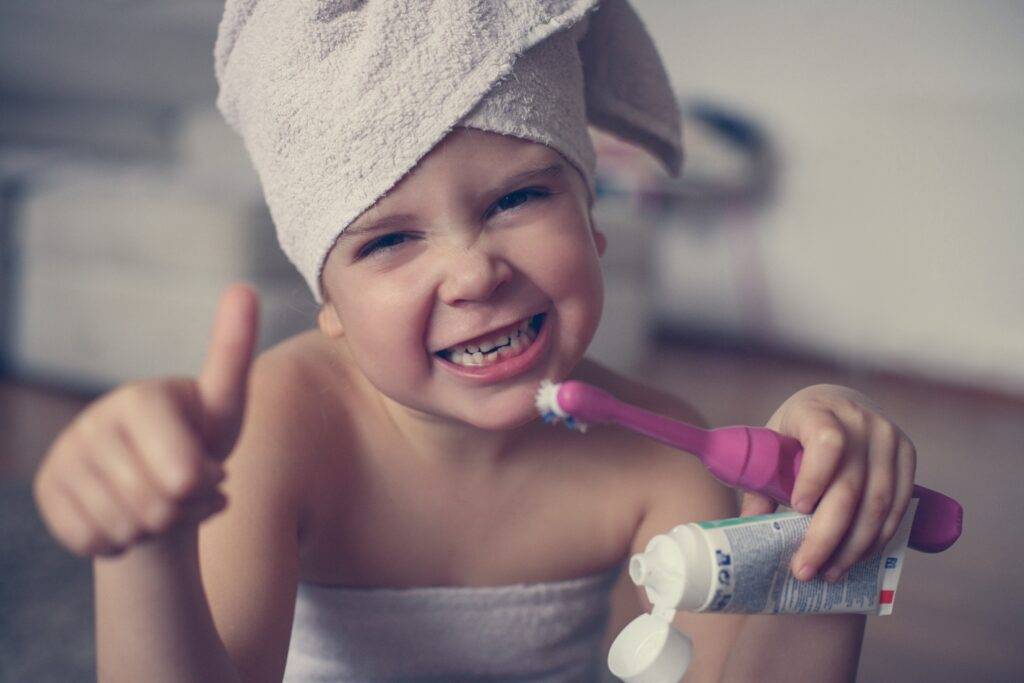
Help with Cleaning
Keeping ourselves and our surroundings clean and tidy, teaches us self-discipline and a sense of responsibility, not to mention a sense of pride. There is a lot of research evidence lately into the connection between decluttering, cleaning and mental health and well-being. A neat, tidy uncluttered space is also very calming for children. Even though it is often easier and quicker for us adults just to clean up and pick up all our children’s toys, however our kids will be deprived of a huge learning opportunity if we do that.
Just like every other skill, this too is something we have to model and explicitly teach our kids. From when they are babies and toddlers, we begin teaching them simple things like putting toys into a tub after they have been played with. Make up a silly song or game to see how quickly toys can be tidied away, making it a little more fun too!
As they get older, we can begin assigning age-appropriate chores. Just remember our children are not our slaves, they are just little people that we are slowly and gently training to be independent adults one day.
Start with simple things like them tidying up after themselves, putting their clothes in the laundry hamper (even when they have been doing it all their lives, they sometimes still leave clothes on the floor! Seriously?!), and using a brush and pan to clean up any messes they make.
Something to keep in mind:
- They are learning, so don’t criticize them, give them positive encouragement, and if you really have to redo something they have done, do it when they are not watching.
- Praise the effort not their person. Instead of “What a good boy for tidying away your toys” rather say “You did a great job of tidying away your toys. Well done.” This way they learn that the effort they make is rewarded.
Help with Laundry
When you have kids your laundry load suddenly becomes a lot bigger! This too is an opportunity for children to learn. For young children it presents an opportunity to learn about the mathematical and scientific concept of classification in a fun way that allows kids to experience mathematics in their everyday lives. Children can help you sort the laundry into different colours. A three-year-old, can certainly help with pegging up small items like socks which will be benefitting their fine motor skills too!
When it comes to folding up laundry, young children can certainly help. Sock matching and folding is a practical life skill which teaches children visual discrimination when matching similar colours and type, and assists in fine motor development.
With your help, young children can also help put away some of their own laundry teaching them independence and a skill that will come in very handy as they grow older.
Getting dressed by Themselves
At around two or three some kids become very interested in dressing themselves. And so, they should. Help them pick out the clothes they want to wear. Give them a choice of two things, This one or this one?” Limiting the choice will not only get the job done quicker, but will also teach them about decision making.
Being able to dress oneself is a basic life skill that should already be in place once a child starts kindergarten or Pre-Primary here in Australia. Even though they will still need lots of help, they should be able to put on their shoes and socks and a sweater or jumper by the time they are four or five with relative independence. Apart from it being a life skill, getting dressed also provides another opportunity to develop fine motor skills as the little muscles in their hands are learning to do up buttons, pull up zippers and tie shoelaces. Although, they will only have the dexterity for tying shoelaces properly at around age six or seven.
Learning Time Management
Getting somewhere on time is an important skill that should start being taught when kids are young. You will need to get to appointments on time and show up for things when you say you will, not to mention getting to school on time or starting lessons on time. Even kids that live on farms start to understand about time management when they become part of all the daily tasks that need to be done, like feeding animals etc.
Kids are really interested in things like clocks and watches, so it’s a good idea to have a clock up in your home. Analogue is best because kids can learn about the hours and minutes as they get older. Teaching them how to keep to a schedule and stay on task is a life skill that many adults still struggle with. How’s your time management? Mine could certainly be better!
This is probably one of the trickiest skills to teach. A kid doesn’t understand what five minutes is. Saying, “We’re leaving in five minutes,” is meaningless to them. You will slowly have to allow them to experience what time is. Look at a clock when they start breakfast and say “See we are eating now at 8 o’clock” and to a four- and five-year-old you can say “We have to leave by 8.30, that’s when the big hand is on the six.”
One thing to remember is that we don’t want to stress our kids or ourselves with this time management thing. If you need to go to an appointment, start getting ready early, so that you can leave on time and not make it stressful when everyone’s running around and kids are crying and you’ve forgotten to take whatever it was that needed to be taken to the appointment.
Helping with Meal Preparation
By the time kids are around 4 and 5, they can learn how to do simple things like make a simple sandwich and pour a glass of milk. Teaching them how to spread butter or peanut butter onto a slice of bread can go a long way not only to teach them independence, but also help their fine motor skills and coordination. By spending time in the kitchen with you, kids learn about healthy eating and how to take of themselves in another small but not insignificant way, that sets them up for an independent future.
Make sure you teach kids from the beginning how to navigate the kitchen safely. Maybe have a designated knife just for them so that they don’t cut themselves (not badly anyway). Take a look at this post where I outlined the importance of cooking with kids and all the incredible skills they learn in a kitchen.
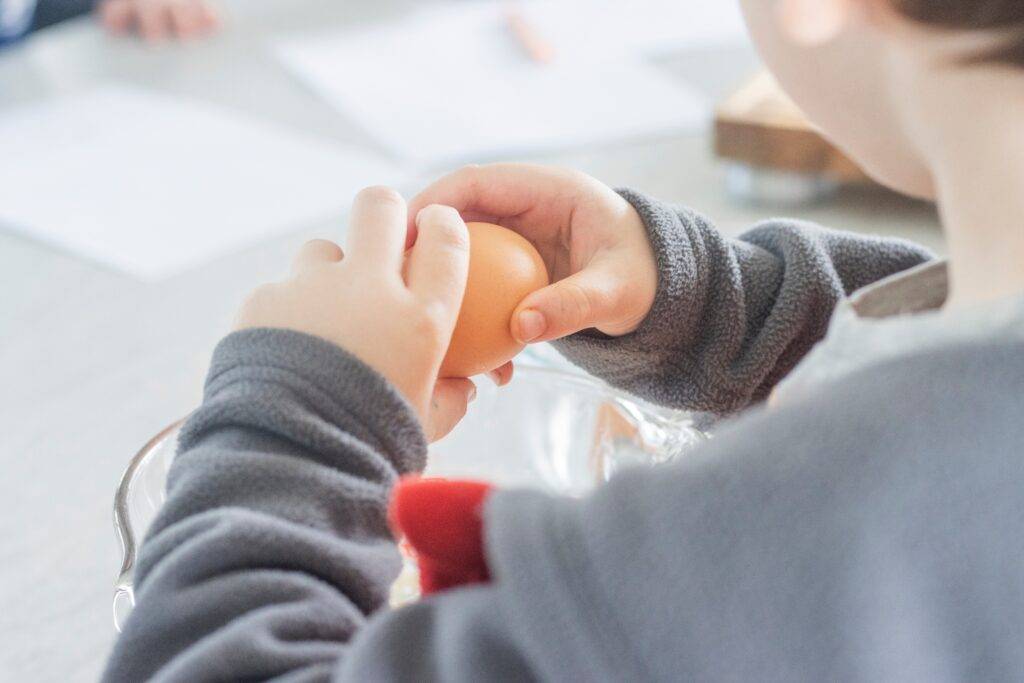
Learning about Money Management
Many of the financial problems that occur in families can be attributed to poor money management and the accumulation of debt. Being able to manage money and balance a budget is probably one of the most significant things we can teach our kids.
Young children in pre-school and kindergarten are not too young to begin learning about money. One of the difficulties for children to get a handle on money is the fact that so many of us no longer use cash. Digital transactions make it very difficult for children to understand how money works.
This article https://www.annuity.org/financial-literacy/how-to-teach-kids-about-money/ suggests giving children a piggy bank or jar in which to save money, which will allow them to see the effect of spending on the amount they have.
Taking them shopping and teaching them to look at the prices of items will also help develop their thinking about mathematical concepts in real life terms. Very often children have problems with math because they don’t see how it connects to their everyday experiences. Take a receipt home and then show children how much things cost and how much money one needs to pay for the items.
If they have their eye on a toy, why not encourage them to save for it, and then buy it when they have enough. This is how we encourage setting goals and working towards it. It also of course teaches us patience. There is no better financial lesson than this.
The question arises how they are going to earn money in the first place. You could set up a menu of things to do around the house, but I always worried about this, because I wanted them to understand that helping around the house is what we do as part of a family. You don’t get paid to unpack the dishwasher, this is a normal part of being a part of a family and helping out. Asking family members to give money as a birthday gift is another way kids can earn money and build up a little savings account. Each family will have their own way of coming up with a plan for this.
A really great way to help kids learn about money is to encourage them to set up a shop or restaurant. I have fond memories of my own boys settling up a restaurant called Bugs and Slime where all items on the menu were bug related (what else?!). This is an amazing way to incorporate all sorts of learning skills, especially once they get to five or six years old. They write out a menu, create a price list, learn to ask for orders and then work out how much you owe and what change you need. You don’t need spcialised toys for this, just use what you have.
Basic Life Skills Conclusion
I’ve listed seven practical skills that will help set kids up for independence and success. Our job as parents is to ensure we enable our children in positive ways so that they become independent and are one day capable of looking after themselves and their own families. As much as we love them, and want to protect them, not encouraging these basic skills will do them no favours.
So, embrace every opportunity to teach them valuable lessons, but just remember they are our children, not our slaves and they need us to show them how to live, and we do that by setting a good example. As always, remember our children are watching us and copying our every move and word.
If you find this post interesting or useful why not share it to your social media so that others can benefit too! Just click on one of those share buttons below.
